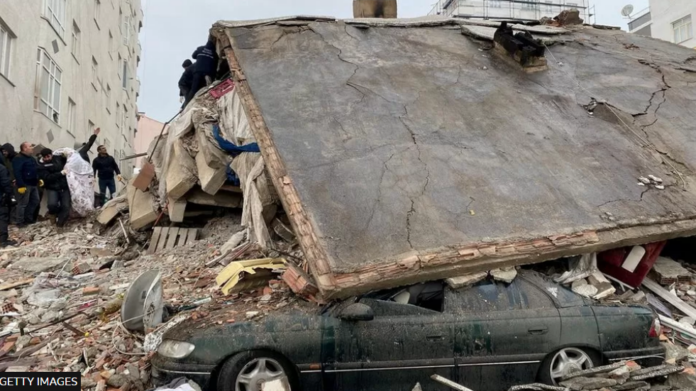By this morning the death toll in earthquake-hit Turkey and Syria had risen to nearly 16 000.
It has been reported that Turkey’s death toll rose to 12,873 this morning, from 12,391 late on Wednesday, the country’s disaster agency said. The most recent figure from Syria stands at 2,992. This brings the overall number of fatalities to 15,865.
Cold weather continues to affect the region with minimum and maximum temperatures for Kahramanmaraş of -6C and 1C (21-34F), for Gaziantep between -5C and 1C, and Diyarbakır expected to have continued snowfall with temperatures climbing to 2C at most.
According to the Syrian state media, more than 298,000 people were forced to leave their homes, This number appeared to be a reference of government-controlled parts of Syria, excluding those that are held by other groups in the north-west of the country, which is closer to the epicentre of the earthquake.
Director-general of the World Health Organization Tedros Adhanom Ghebreyesus said: “We are sending expert teams and special flights with medical supplies to Turkey and Syria.”
Polish rescuers who are working in Turkey said thus far, they have pulled nine people alive from the rubble, including parents with two children and a 13-year-old girl from the ruins in the city of Besni.
Rescue workers and residents erupted in cheers when a family was saved from the rubble of a demolished building in the Syrian village of Bisnia on Wednesday. A man, his son and daughter were pulled out from beneath the rubble where they had been stuck for two days.
Syria’s government has received help from a host of Arab countries including Egypt and Iraq, as well as its key ally Russia, which has sent rescue teams and deployed forces already in Syria to join relief work, including in Aleppo.
Syria activated the European Union (EU) civil protection mechanism, two days after the earthquake, to request further assistance from the 27-country block and the eight other nation states that are part of the programme. The EU has mobilised search and rescue teams to help Turkey, while the bloc’s Copernicus satellite system was activated to provide emergency mapping services. At least 19 member countries have helped.
Follow @SundayWorldZA on Twitter and @sundayworldza on Instagram, or like our Facebook Page, Sunday World, by clicking here for the latest breaking news in South Africa. To Subscribe to Sunday World, click here.



